Have To Must Can
We use have to and must to express obligation There is a slight difference between the way we use them have to Have to shows us that the obligation comes from outside the speaker We have to wear a uniform when we're working in reception (Student to teacher) When do we have to hand in our homework?.
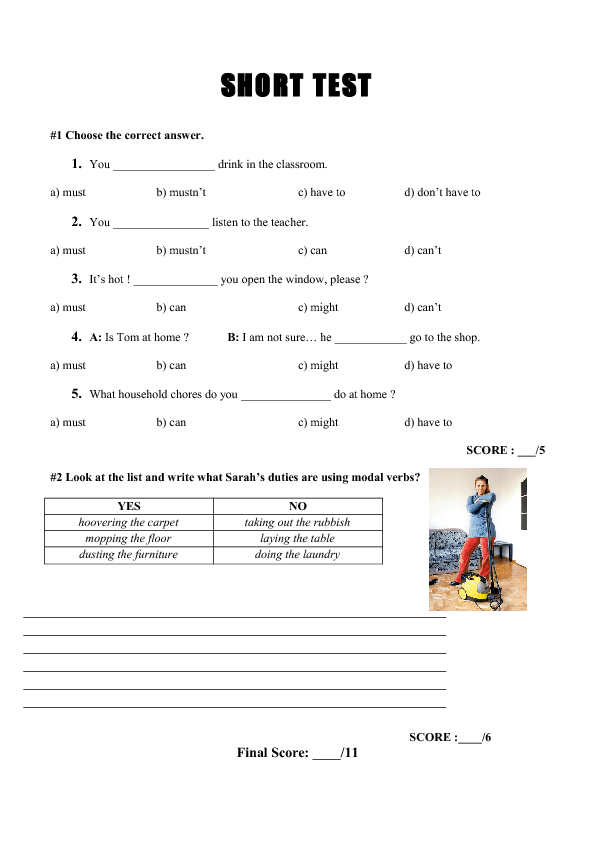
Have to must can. The difference between must and have to can be explained clearly on the following grounds We use the word ‘must’ to show the indispensability of something It indicates the exigency of an act On the other hand, ‘have to’ is used to indicate that the subject is bound to act in a specified manner, because of some external pressure. PERMISSION, OBLIGATION and PROHIBITION MUST, MUSTN'T, CAN, HAVE TO You make noise in this area I watch TV late at night My parents say I must go to bed early. I must go to the doctor I must get up early tomorrow You mustn’t call me before 8 It is used to describe something that the speaker thinks is necessary to do You must eat less candy I must try to do more exercise We can also use must to express strong advice You must see the new film;.
Make sure to point out that 'have to' is used for daily routines while 'must' is used for strong personal obligation Discuss the differences between 'don't have to' and 'mustn't' Make sure to stress the idea that 'don't have to' expresses the idea that the person isn't required to do something but may do so if he/she would like while 'mustn't' expresses the idea of prohibition. Can vs Be Able To With Tenses 3 Can vs Could Exercise 4 Can Can't Exercises 567 Mustn't vs Don't Have to Exercises 1 / 2 / 3 10 Must vs Have to / Has to Exercises 1 / 2 / 3 11 Must / Mustn't / Needn't / Have to 1213 Modals With Passive Voice 1 / 2 14 Mustn't vs Needn't vs Can't Similar Exercises MODALS V3 Practice Test Ought to. Must, can't expressing present probability Structure modal verb infinitive without ‘to’ must be, can’t be, must have, can’t have, etc We use must to express that we feel sure that something is true The team is playing really well today;.
MUST HAVE TO When do we use 'must', when do we use 'have to'?. I can drive 2) Possibility I can come 1) Obligation I must do my homework 2) For an opinion that you think has a good possibility of being true Look at his uniform He must be a policeman MAY HAVE TO 1) Probability She may come tomorrow 2) In a very polite question May I. Must/mustn’t, have to/don’t have to – form Download fullsize image from must/mustn’t Use must infinitive without to Must is a modal verb, and modal verbs are followed by an infinitive without to I must go to the doctor (NOT I must to go to the doctor;.
Check out our grammar page on modals of obligation Quick Review We use "can" for permission / possibility We use "have to" for obligation We use "don't / doesn't have to" for no obligation We use "can't" to say that something isn't allowed. Modal auxiliaries can have more than one sense The verb must for example can be used to talk about obligations what people think it is a good idea or bad idea to do (Some people call this type of meaning deontic modality) Here's an example You must be in class by 9 am Here someone is saying that you have an obligation to be in class by 9 am. Have to, must Have to is NOT an auxiliary verb (it uses the verb have as a main verb) We include have to here for convenience Must is a modal auxiliary verb In this lesson we look at have to, must and must not, followed by a quiz to check your understanding have to.
Unlike “must” where we just make an inversion to create the interrogative,. Must I chair the meeting?. You can do this grammar quiz online or print it on paper It tests what you learned on the have to, must page 1 Yesterday I ________ finish my geography project 2 She will ________ wait in line like everyone else 3 All employees ________ on time for work.
must mustn’t must not can’t have to don’t have to should shouldn’t Sometimes more than one option is possible – you only need to write one answer each time Click ‘Hint’ on the remaining questions to see the options in the box 11 You’re at a party and it’s after midnight “I go It’s getting late”. We use can't to say we are sure that something is impossible. Los verbos modales “can't have" / "must have" / "might have” Verb conjugation practice Contenido de suscripción Los verbos modales must, have to, should, should have Modals must, have to, should, should have passive Dictation exercises focus on grammar Contenido de suscripción Los verbos modales must, have to, should, should have.
Both words are also used to communicate a desire for something to happen, though have to is more commonly used this way in. Instructions A) For questions 1 to 5, read each sentence, and select the correct answer from the three options B) For questions 6 to 10, read each alternative, and choose an. In positive sentences we can often use must and have to with little difference in meaning, because many things are important both because we think so and because there are rules You must work hard in order to succeed (or you have to work ) 4 Negative Note the difference in meaning between mustn’t and don’t have to.
Modal verbs have the following characteristics 1) They do not have participle or infinitive forms 2) They do not take the ending (e)s in the thirdperson singular 3) They do not have a past form He/she canted He/she musted 4) The negative is formed by the addition of not / n’t He cannot/ He can’t NOT He don’t can. Must vs have to Both Must and have to express obligation or necessity, but there are some small differences • Must expresses the speaker's feelings, whereas have to expresses, above all, an impersonal idea You must come You are obliged to come (I require that you come) You have to come You are obliged to come. Have to, don't have to, must, mustn't (1) Type the correct answer into the box Use contractions where possible Youhave a passport if you want to travel abroad Youarrive late Youstand on the plane There are seats for everyone.
Modal Verbs of Obligation We can use have to infinitive, must infinitive and should infinitive to express obligation (something you have to do) Children have to go to school I don't have to work on Sundays You don't have to eat anything you don't like I must study today. Expressing “must” or “have to” Contents hide 1 When there’s something that must or must not be done 2 Using 「だめ」, 「いけない」, and 「ならない」 for things that must not be done 3 Expressing things that must be done 4 Various shortcuts for the lazy 5 Saying something is ok to do or not do. Modalverben must, have to, should, should have (Modals must, have to, should, should have) Should Wir verwenden „should", um im Präsens einen Rat oder eine Stellungnahme zu geben oder zu erbitten "I have a terrible stomachache" "You should go to the doctor's".
The meaning of have to is —used to say that something is required or necessary —also have got to How to use have to in a sentence. We use have to / must / should infinitive to talk about obligation, things that are necessary to do, or to give advice about things that are a good idea to do Mus t and have to are both used for obligation and are often quite similar They are both followed by the infinitive I must go now / I have to go now Are these exactly the same?. Let’s find out in today’s Confident English lesson Need to vs have to vs must can be used as synonyms Sometimes That’s the good news Generally, they all mean that you’re talking about a responsibility, an obligation, or something that is important to do This is where they are similar.
Both must and have got to can be used to talk about necessity They are usually interchangeable;. Must and have to modal verbs exercises Auxiliary verbs in English elementary, intermediate and adavanced level esl Index of contents Can / could exercises May / might Must / have to Shall / should Will / would Mixed modals exercises Had better Home Worksheets. = I have to know, where did you get your shoes?.
Sometimes, "must" and "have to" can be used to speak about responsibilities However, "must" is generally used for strong personal obligations and "have to" is used for responsibilities at work and in everyday life I must do this right now!. Aprende estos verbos modales en inglés Must, mustn't, have to, don't have to, can, can't, should, shouldn't con ejercicios y ejemplos Modal verbs in Englis. Have To vs Must There is a slight difference between have to and must though they both seem to convey the same meaning In fact, it can be said that must and have to are two different words that give different senses and not the same meaning.
Can vs Be Able To With Tenses 3 Can vs Could Exercise 4 Can Can't Exercises 567 Mustn't vs Don't Have to Exercises 1 / 2 / 3 10 Must vs Have to / Has to Exercises 1 / 2 / 3 11 Must / Mustn't / Needn't / Have to 1213 Modals With Passive Voice 1 / 2 14 Mustn't vs Needn't vs Can't Similar Exercises MODALS V3 Practice Test Ought to. You can see that Mustn’t is a negative obligation while Don’t have to is an absence of obligation Don’t have to means it is not necessary, it is not compulsory, but you have a choice You have the choice to drink that or not However Mustn’t is an obligation. Firm obligation, etc must and have to The verb must only exists in the simple present and present perfect forms While the present form can express obligation, necessity, certainty or strong probability, the present perfect forms only express a strongly felt opinion or supposition.
MUST HAVE TO must and have to are used to express obligation or the need to do something They can be used interchangeably I) Meanings MUST (subjective obligation) In general, it expresses what the speaker thinks is necessaryI must stop smoking/ We must go it's already midnight/They must work harder __HAVE TO (objective obligation) In general, it suggests that. No s Modal verbs don’t add s after he/she/it He must come with us (NOT He must comes with us. English Grammar Use Of Must/Have To/Should Trivia Quiz!.
They must win They must be very rich – look at their big house!. The traveller can't use ArriveCAN to complete their reporting after entering Canada They must call each day during their 14day quarantine, unless exempt from this requirement Getting your ArriveCAN receipt Once you submit your information through ArriveCAN, a receipt will be displayed and emailed to you. Can we always use them in the same way?.
It must be 90 degrees in here = It has to be 90 degrees in here Both have to and must can be used to add emphasis to a statement I must know, where did you get your shoes?. However, have got to is mainly used to talk about obligations that come from outside On the other hand, must is mainly used to talk about the feelings and wishes of the speaker and the hearer In American English, have to is more common than must. Do we say "I must do my homework" or "I have to do my homework"?.
Can / could exercises May / might Must / have to Shall / should Will / would Mixed modals exercises Had better Worksheets handouts Home. For example ‘I have to cut my hair because long hair isn’t allowed at my new company’ Possibility When we are talking about possible causes of a situation or action, we can use the word ‘must’ to show we are fairly sure of the reason behind something For example The cookies are missing Sally must have taken them. In English, we use "must" and "have to" to express a strong rule or law In this grammar les.
Must/Could/Should/Would have Hay verbos modales que funcionan como el pasado de otros, como es el caso de can y could , will y would, pero la forma en pasado no termina ahí Los verbos modales también pueden trabajar en conjunto con el presente perfecto (verbo have pasado participio del verbo principal de la oración) para referirse a algo. “Must” is an example of a modal verb Here are some examples of other modal verbs can, could, shall, should, ought to, will, would, and might They are used to with other verbs to express ideas like possibility and necessity It should be noted that “have to” functions as a verb “Have to” serves to convey the idea of necessity. Al has to work tomorrow so he can't come.
As we can see, the inversion is the only thing that changes from the structure in the affirmative How do we make questions with “to have to”?. Must and have to both express obligation However, they are used differently depending on who imposes the obligation 'Must' can also be used to show that we are certain something is true In this case we are making a logical deduction based on the evidence we have.

Difference Between Have To And Must Difference Between

Must Mustn T Can Have Don T Have To English Esl Worksheets For Distance Learning And Physical Classrooms

How To Teach May Might Could Must Off2class
Have To Must Can のギャラリー

Modals Of Deduction Might May Can T Must Worksheet
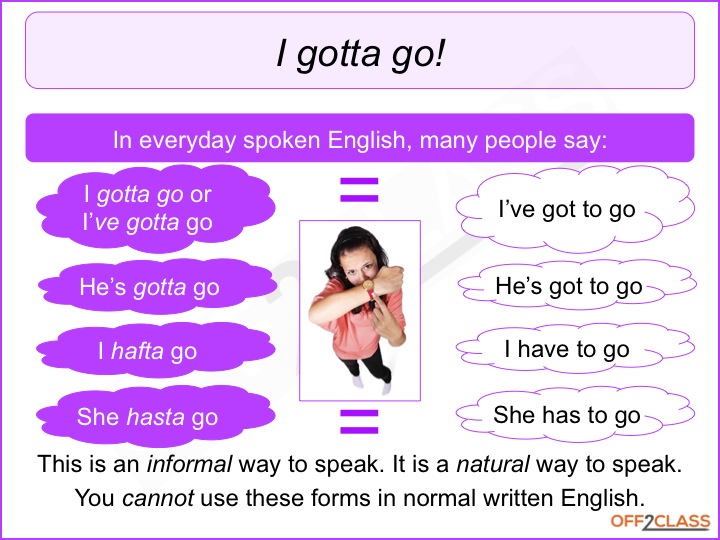
Teaching Must And Have To Necessity Modals Off2class
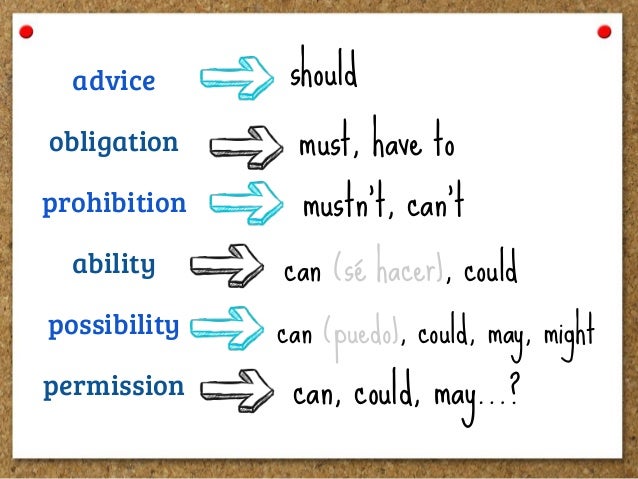
Modals Can Could May Might Should Have To Must
/sign-warning-people-of-fines-for-feeding-wildlife-in-a-park-at-arakoon-in-new-south-wales--australia-847527992-5bc9d8c246e0fb0026d028e0.jpg)
How To Use Must Have To And Need To In English

Modal Verbs Can T Could Have To Must N T May Might Exercises Key Esl Worksheet By Jessisun
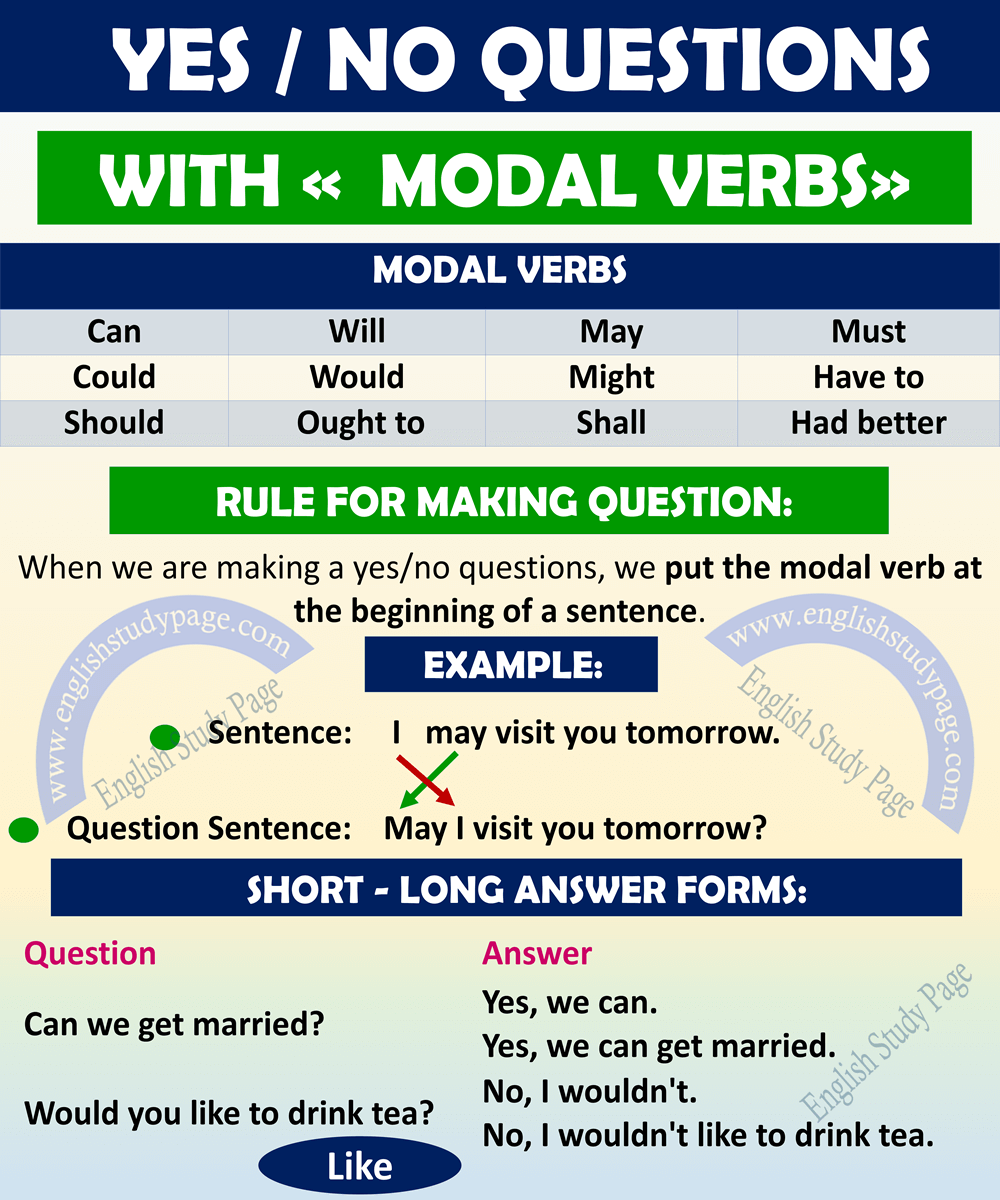
Yes No Questions With Modal Verbs English Study Page

Must Vs Have To Woodward English
Should Have Must Materialy Dydaktyczne
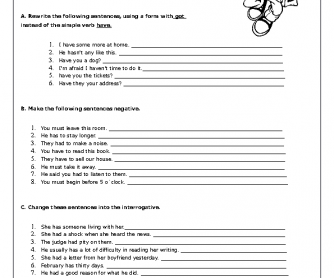
81 Free Must Worksheets
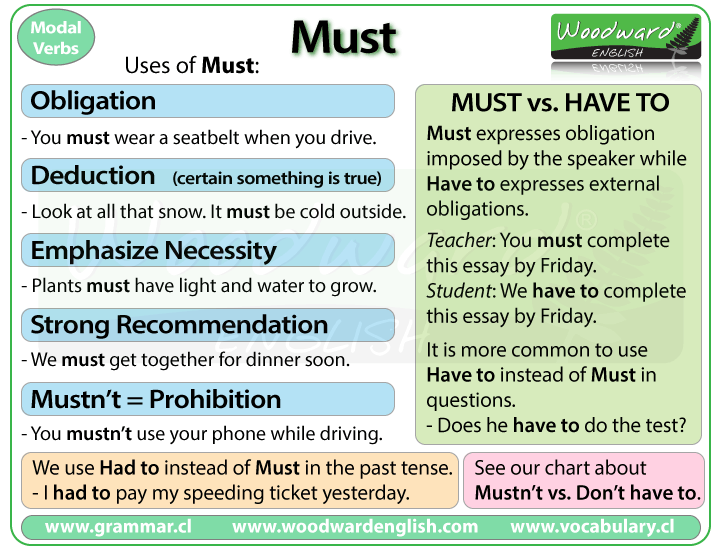
Must English Grammar

Modals Of Probability Can Could May Might Must Can T Worksheet

Unit 13 Language Study Word Study Modal Verbs Yan Dang Mountain Ppt Download
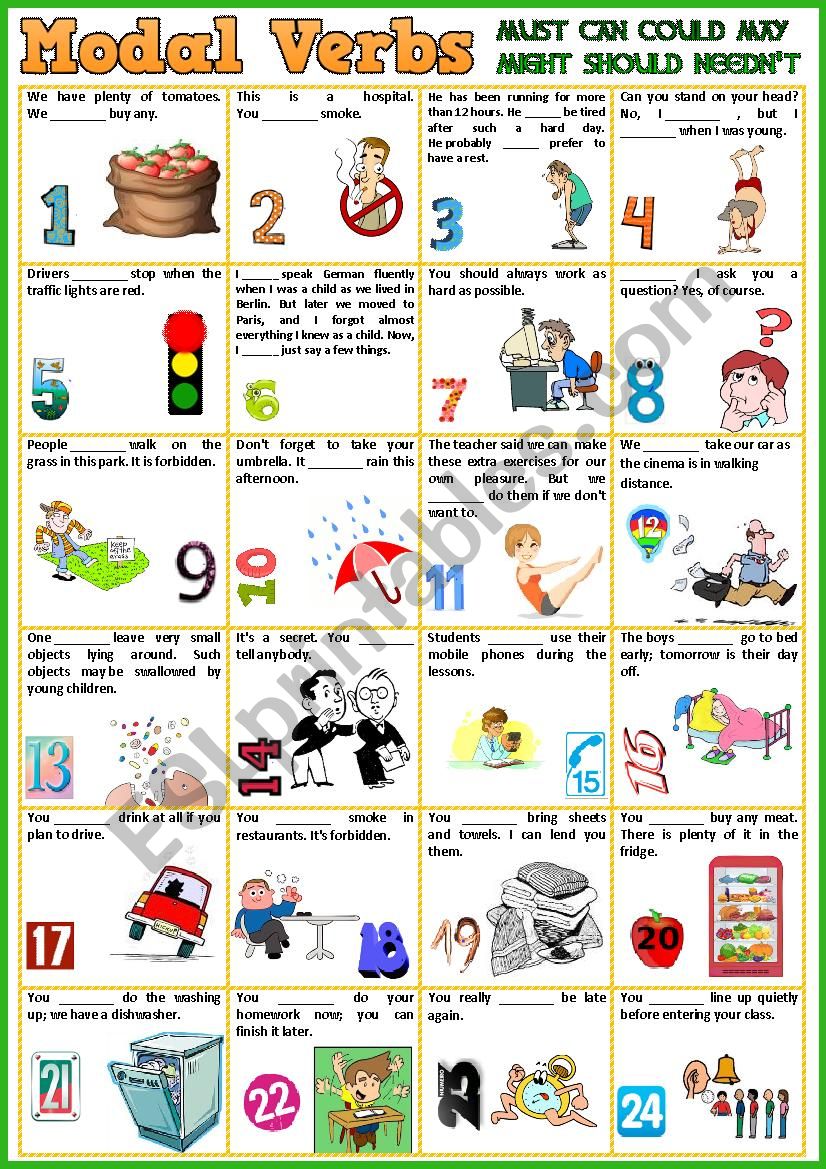
Modals Verbs Must Can Could May Might Should Needn T Key Esl Worksheet By Karagozian

Modal Verbs Online Presentation
1

Must Mustn T Can Have Don T Have To English Esl Worksheets For Distance Learning And Physical Classrooms
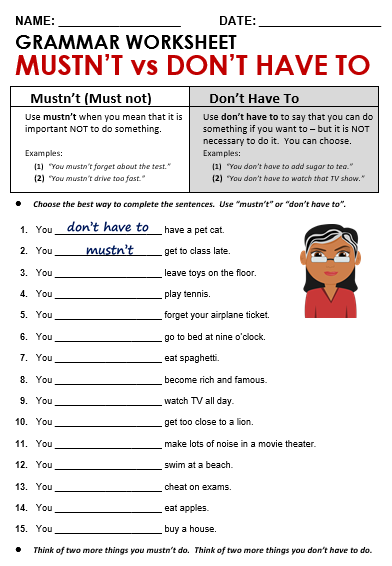
Must Necessity All Things Grammar
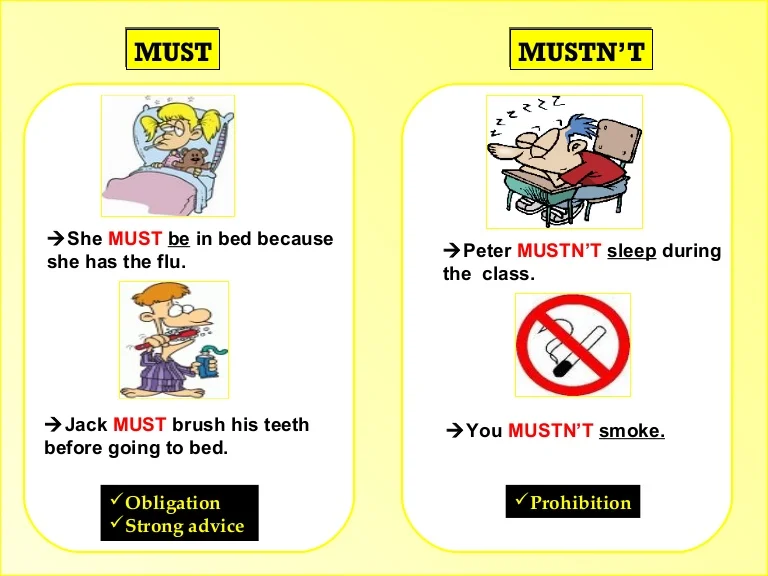
Modals Have To Must

Modals Can May Must Worksheet Pdf

Modal Verbs 1 Can Can T Could Must Mustn T Have To Don T Have To May May Not Docsity

Modals Must Have To Should Ought To Can

Must And Have To Exercises

English Grammar Modal Verbs Of Certainty Might May Must Can Youtube

Grandpa And Ice Cream Last Summer I Were In My Grandpa S Village I Remember Different Funny Stories From There First Week I Were Ill So My Grandpa Didn T Ppt Download

Must Or Have To Worksheet
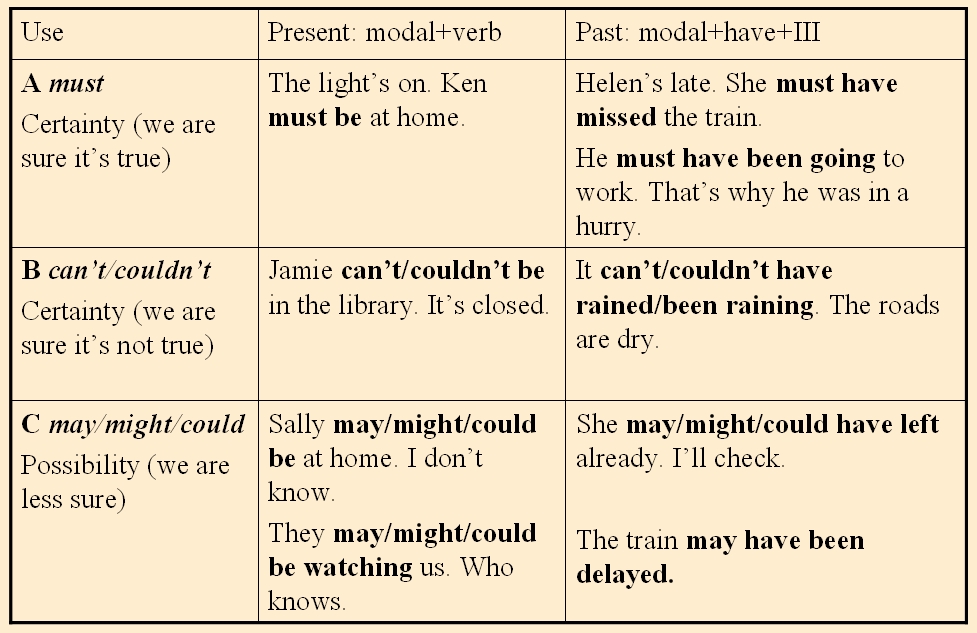
Speculation And Deduction Modal Verbs
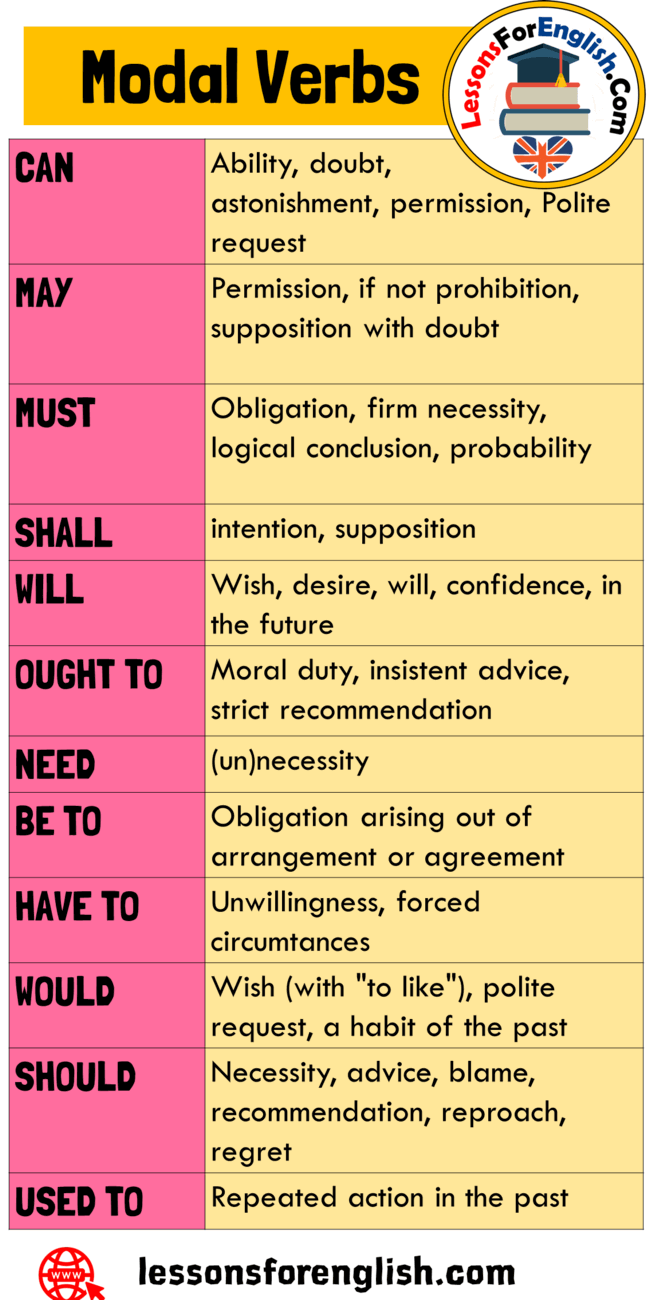
Modal Verbs Can May Shall Need Ought To Have To Would Should Used To Definition And Examples Lessons For English
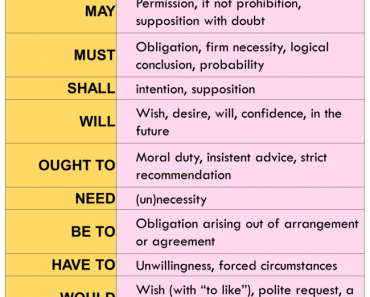
Modal Verbs Of Necessity Lessons For English

Must Vs Have To Woodward English

What Is Obligation In Modals Know It Info
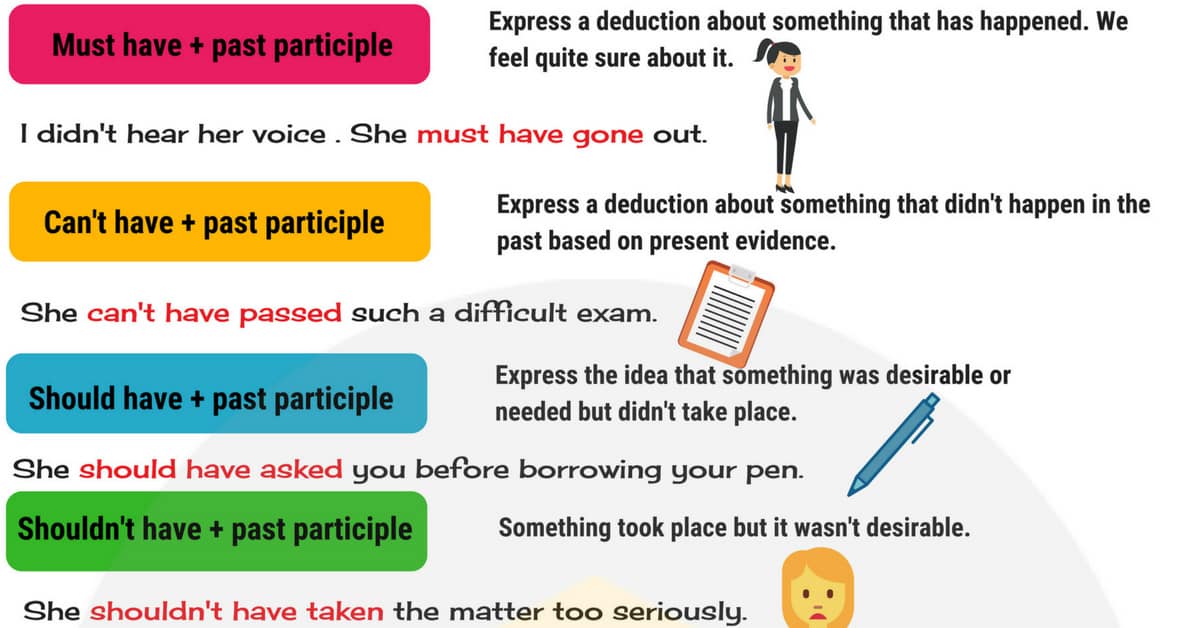
Perfect Infinitive With Modals Could Have Would Have 7esl
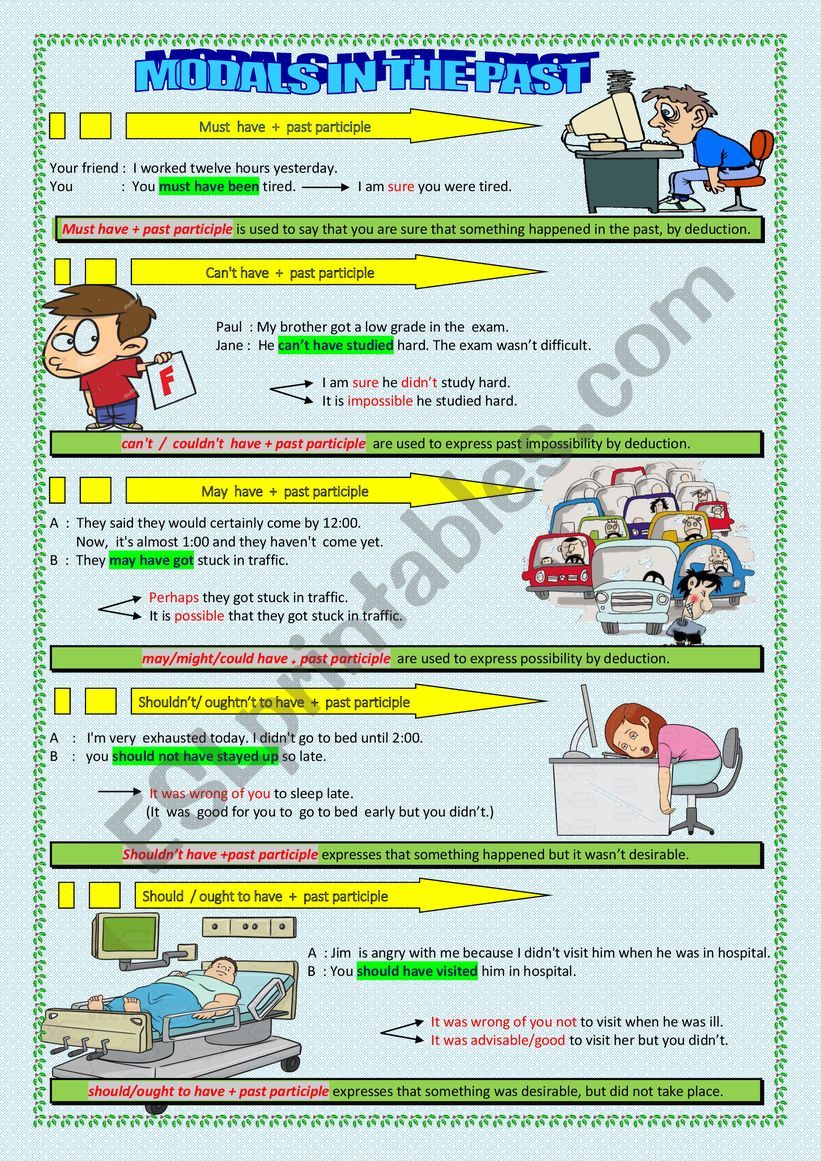
Modals Must Have Can Have May Have Past Participle Esl Worksheet By Benyoness

The Difference Between Must Have To Shall Need And May Wall Street English

Must Have Vs Should Have

English Grammar Must And Have To Mustn T And Don T Have To Eslbuzz Learning English

Expressing Must Can T Should Needn T Might May Could Have English Learn Site
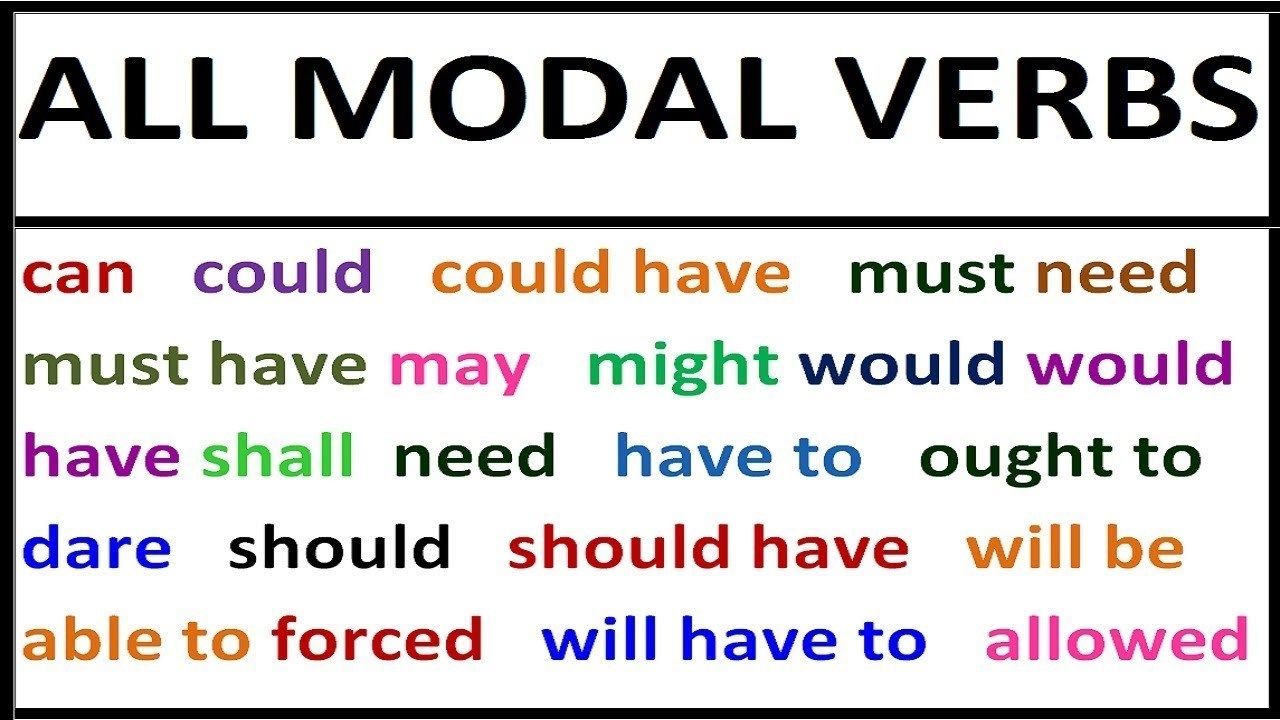
Changing The Way You Learn Slide Set

Ana S Esl Blog Modal Verbs For Eso 3 Students

Pin On Grammar

Mustn T Vs Don T Have To Woodward English
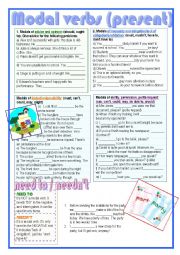
English Exercises Modals Should Shouldn T Mustn T

Modals Can Could May Might Should Have To Must

Must Mustn T Can Can T Have To Don T Have To English Esl Worksheets For Distance Learning And Physical Classrooms
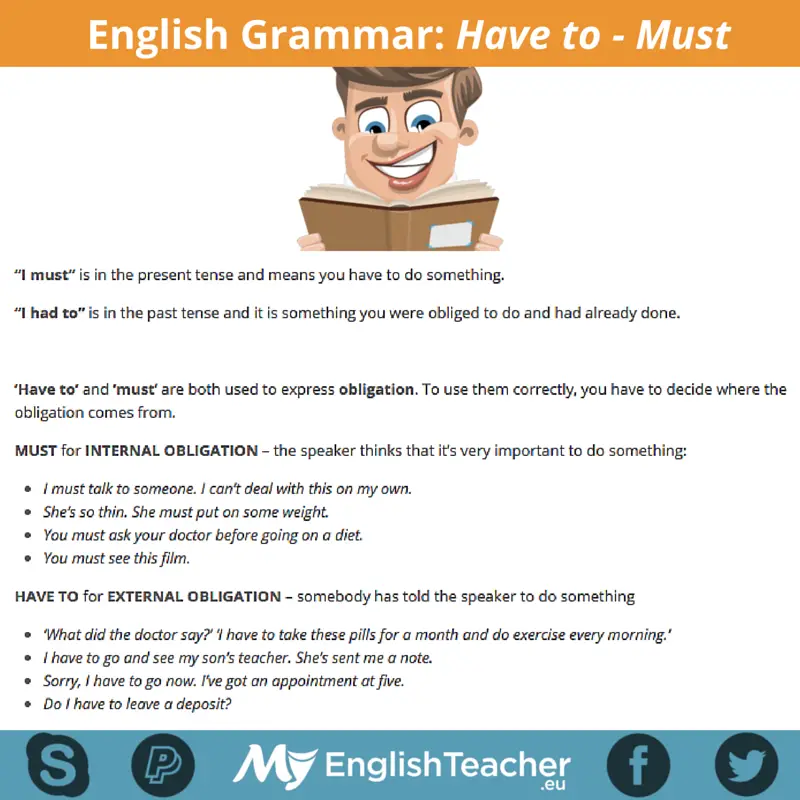
I Had To I Have To Or I Must What Is The Difference Myenglishteacher Eu Blog
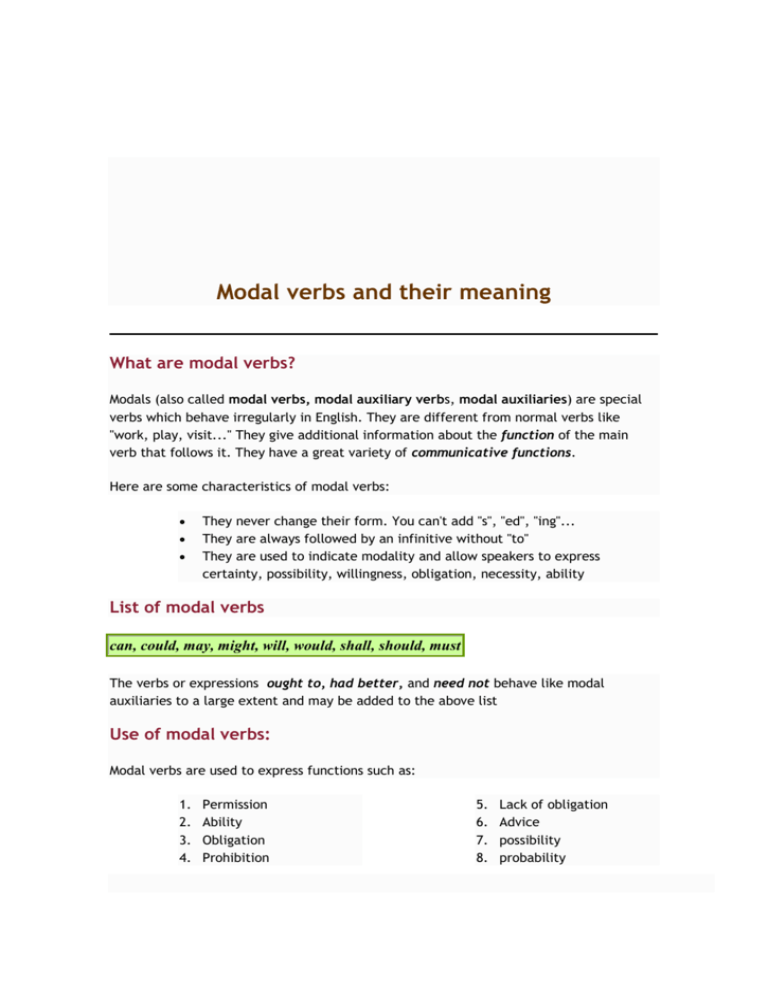
Modal Verbs And Their Meaning

Can T Have V3 And Example Sentences English Grammar Here

Pin On English

Must Mustn T Can Have Don T Have To English Esl Worksheets For Distance Learning And Physical Classrooms

Modal Verbs Quiz Pdf

Test English Prepare For Your English Exam

Modal Verbs Can Can T Must Mustn T Have To Don T Have To Ppt Download
Should Examples

Modal Verbs Test Must Have To Can Might
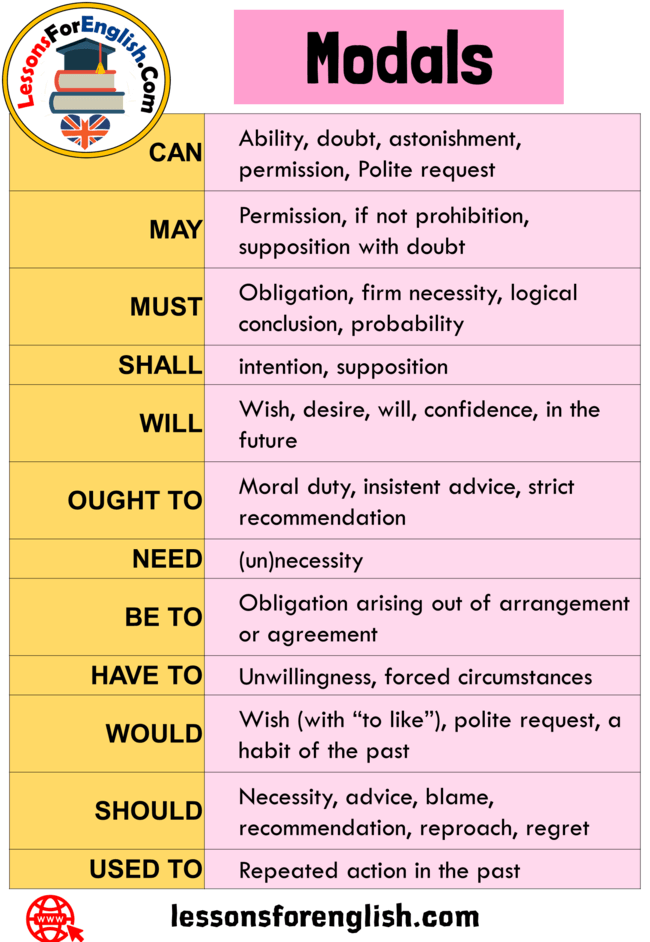
Modals Can May Must Shall Will Ought To Need Be To Have To Would Should Used To Lessons For English

The Difference Between Must Have To Shall Need And May Wall Street English

Modal Verbs Carmen Torres What Are Modal Verbs

The Difference Between Must Have To Shall Need And May Wall Street English
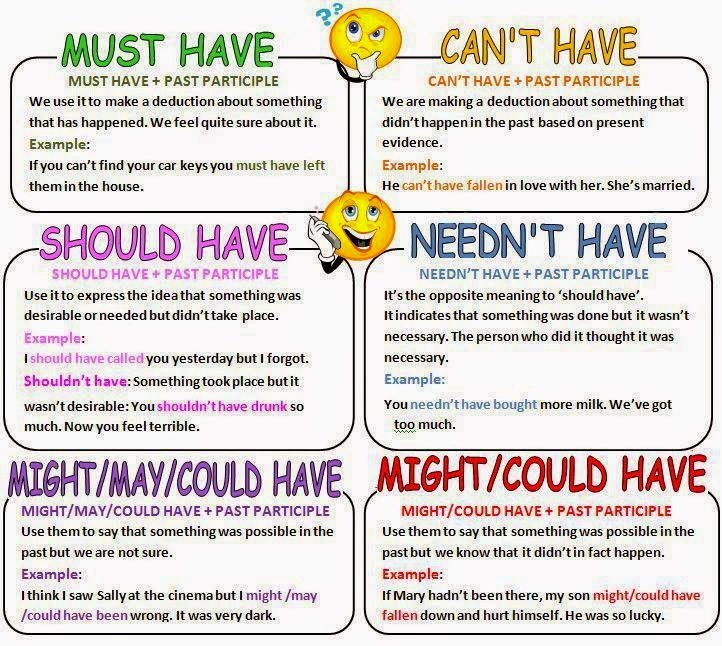
Modal Verbs And Its Types Eage Tutor

Modal Verbs Must Have To Can Should Con Ejemplos Y Explicado En Espanol Idiomas Youtube

Mustn T Must Can T Online Presentation
3

Modal Verbs Must Have To Can Could Should Mustn T Don T Have To Can T Couldn T Shouldn T Ppt Download
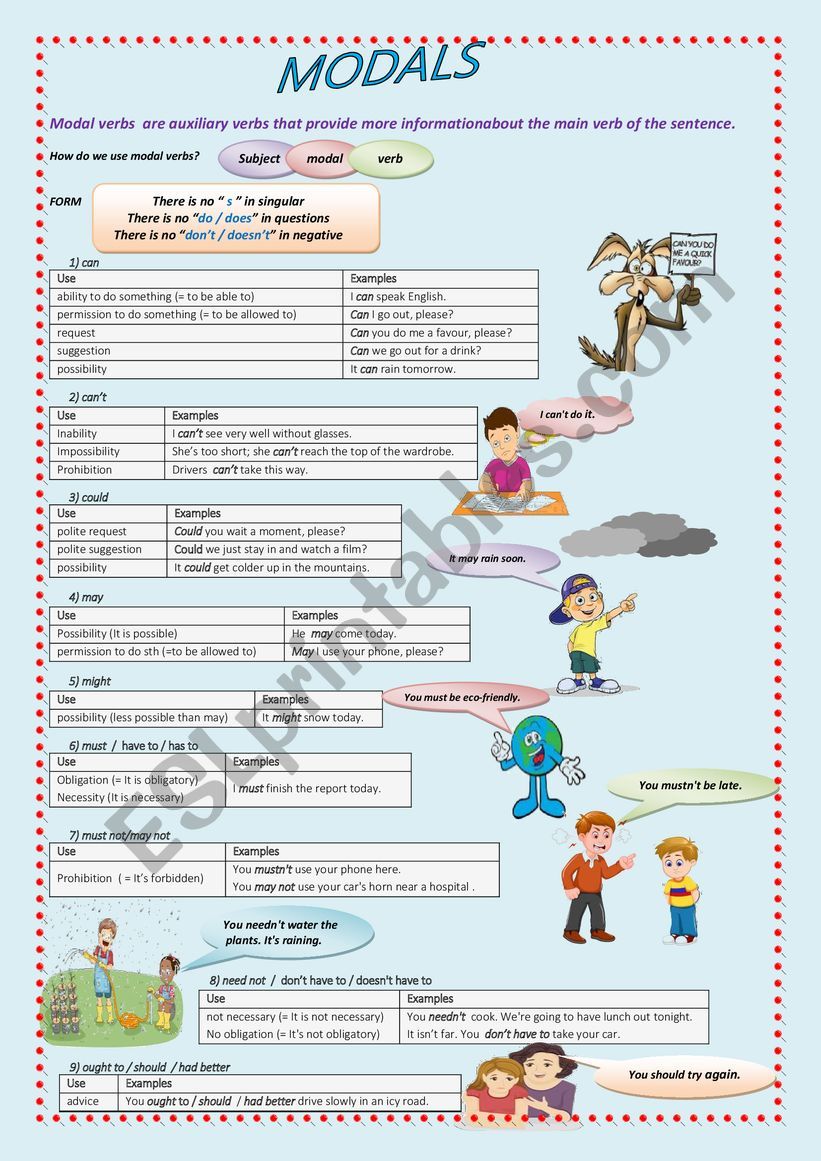
Modal Verbs Can Must Mustn T Needn T Esl Worksheet By Benyoness

Must Vs Have To Must Not Vs Don T Have To 7esl
1
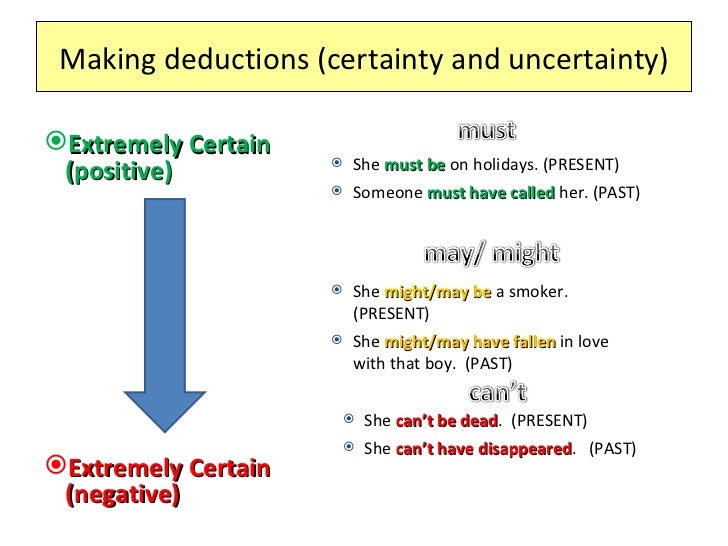
Modal Verbs For Deduction Grammartop Com

Modal Verbs Can Could May Might Should Ought To Must Have To Ppt Video Online Download

Human Rights Defenders We Need Them More Than Ever States Worldwide Must Protect Human Rights Defenders In The Current Covid 19 Crisis World Reliefweb

Modal Verbs Must Have To Can Could Should Mustn T Don T Have To Can T Couldn T Shouldn T Ppt Download

The Difference Between Must Have To Shall Need And May Wall Street English

Test English Prepare For Your English Exam
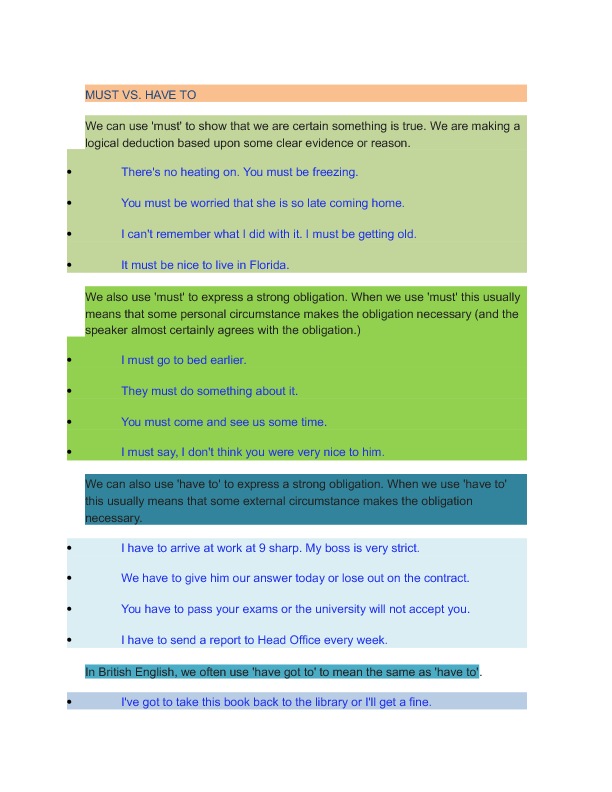
81 Free Must Worksheets

Can Must Should English Esl Worksheets For Distance Learning And Physical Classrooms

Perfect Infinitive With Modals Could Have Would Have 7esl

Test English Prepare For Your English Exam

Can Must Should Worksheet

Modal Verbs Can Must Mustn T Should Have To Worksheet

Mod008 Modal Verbs Pdf Linguistic Morphology Syntax

Must Can And Have To And Degrees Of Comparison Worksheet

Modal Verbs Modals Are Helping Verbs That Do

Intermediate Must Vs Can T Youtube
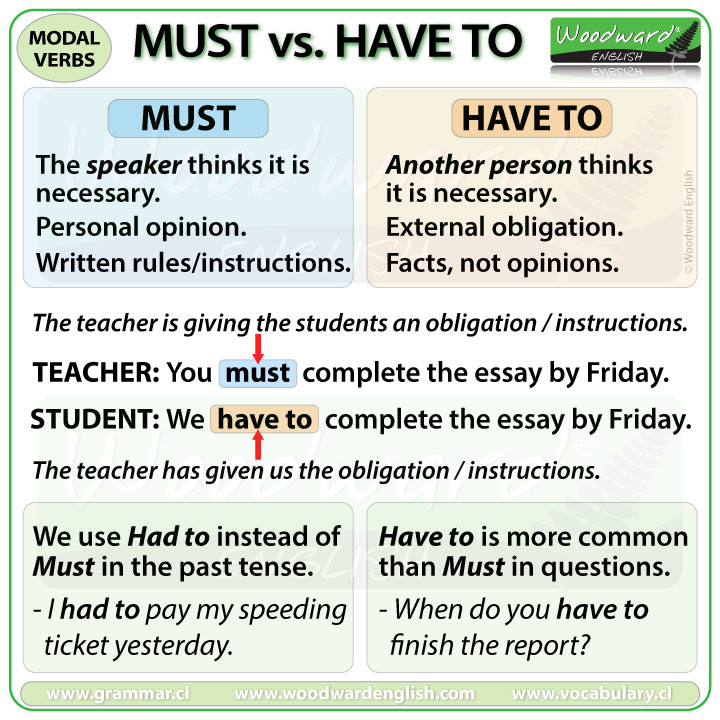
Must Vs Have To Woodward English

Pin On English Grammar
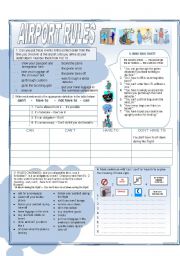
English Exercises Can Or Must
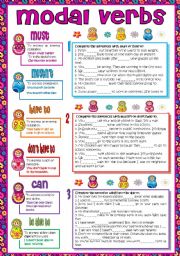
English Exercises Must Have Can T Have
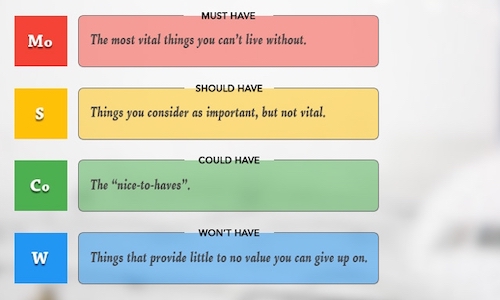
Product Manager Framework Moscow Green System Solutions It Management Consulting

Modal Verbs Activity For Pre Intermediate

Modal Verbs Different Usage And Meanings A Handy Summary

Modal Verbs What Is A Modal Verb

Must Mustn T Can Have Don T Have To English Esl Worksheets For Distance Learning And Physical Classrooms
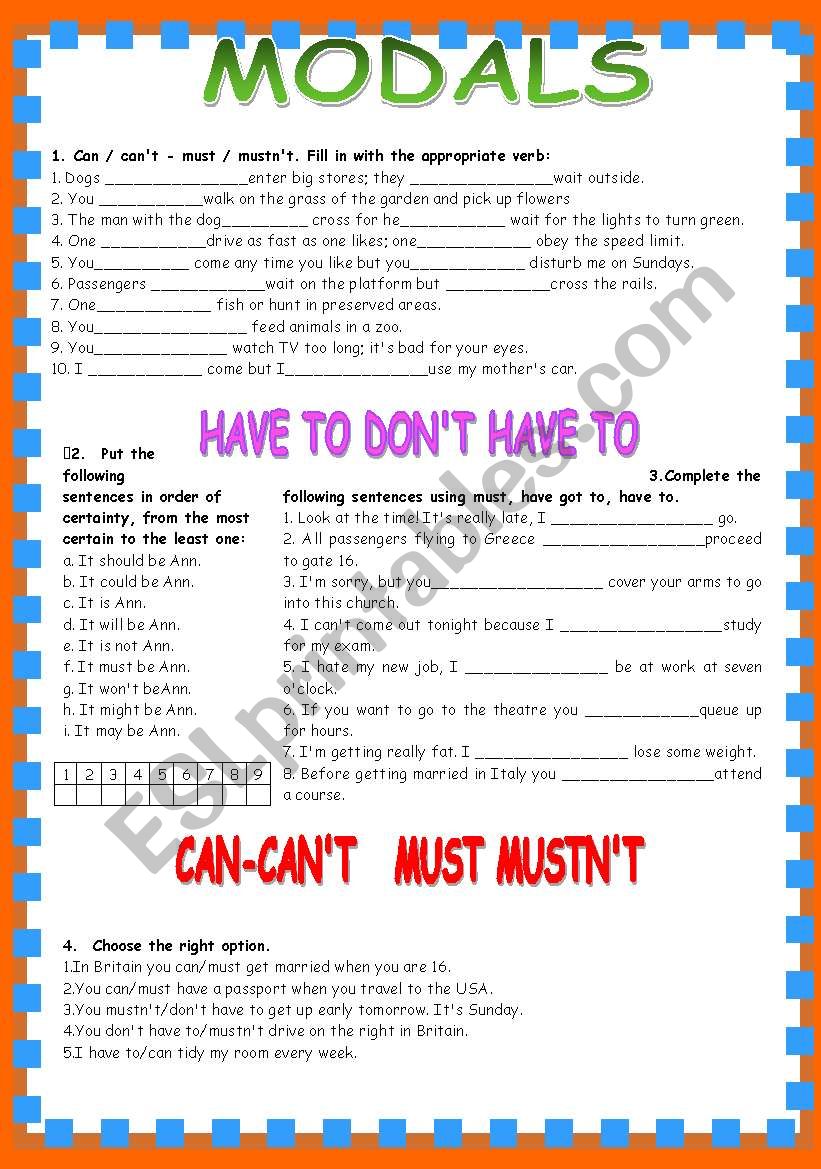
Modals Can Can T Have To Don T Have To Must Mustn T Should Shouldn T Esl Worksheet By Patties

English Grammar Modal Verbs Eslbuzz Learning English

The Difference Between Must Have To Shall Need And May Wall Street English
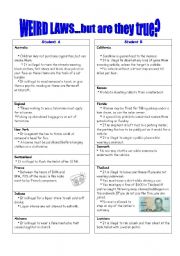
English Exercises Can Or Must

Can And Must Exercises

Teaching Must And Have To Necessity Modals Off2class
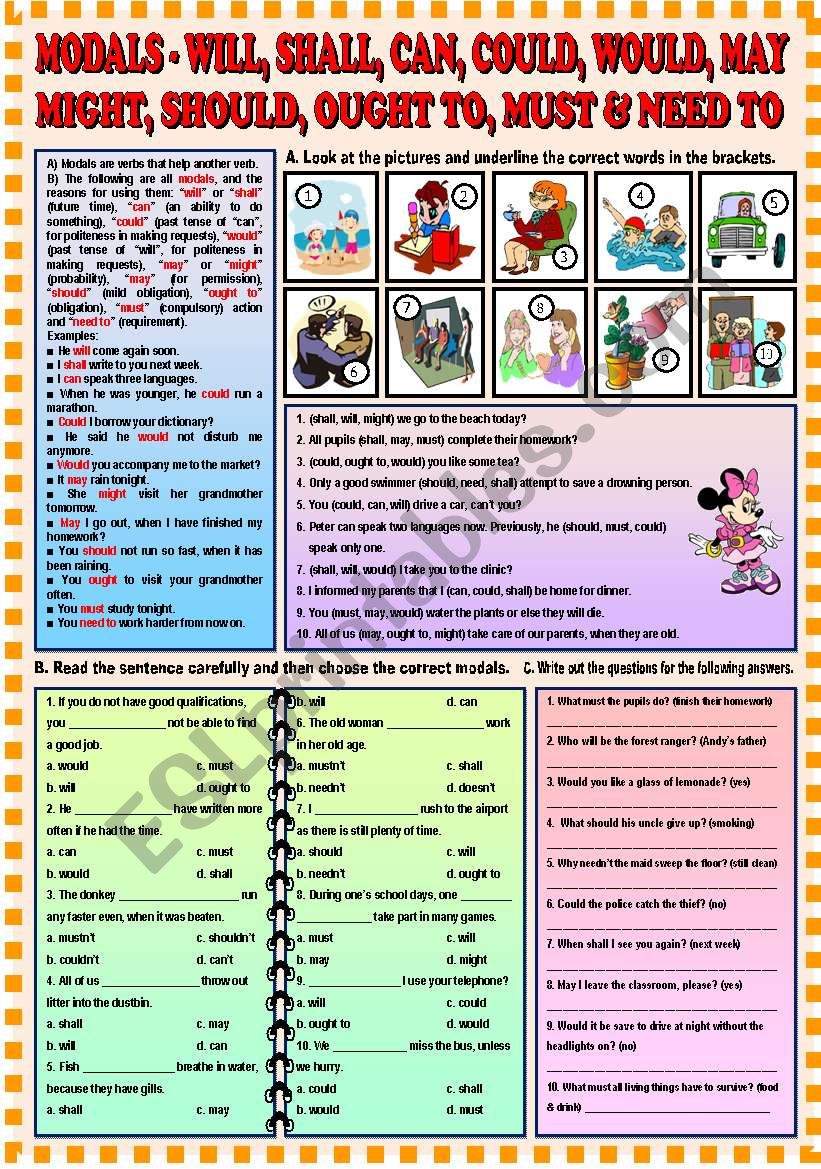
Modals Will Shall Can Could Would May Might Should Ought To Must Need To Key Esl Worksheet By Ayrin
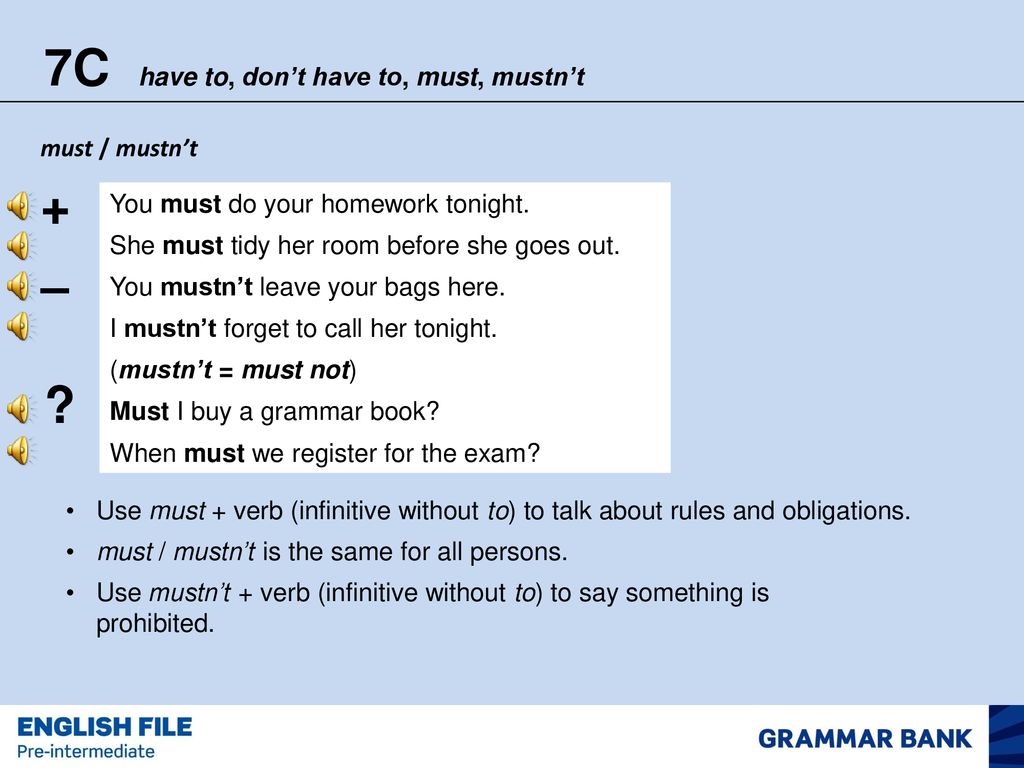
7c Have To Don T Have To Must Mustn T Ppt Download

Test English Prepare For Your English Exam
What Modal Verb Should I Use If I M Sure In Something Quora
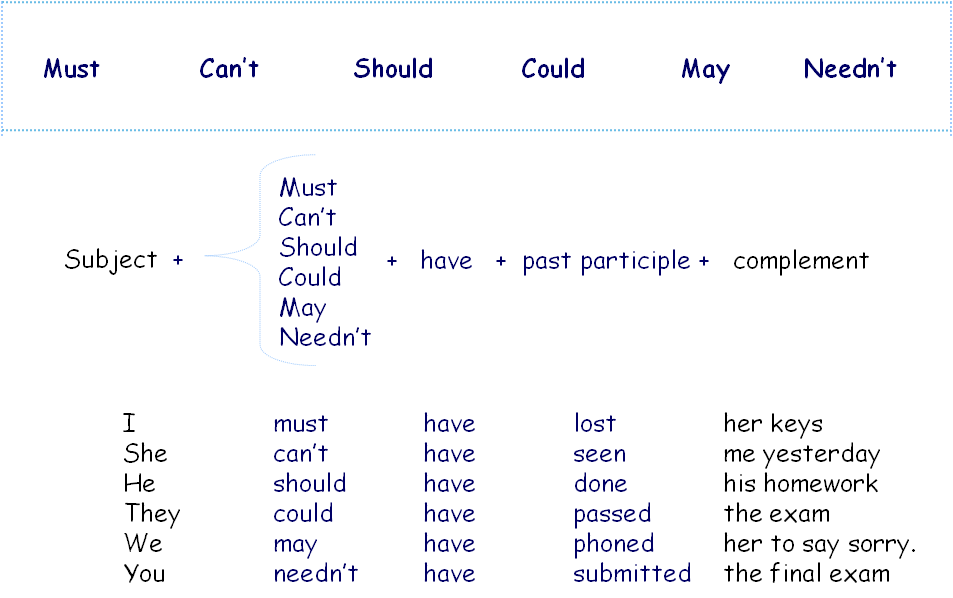
Avanzado 2 Lesson Perfect Modal Verbs 2 Lesson Perfect Modal Verbs




